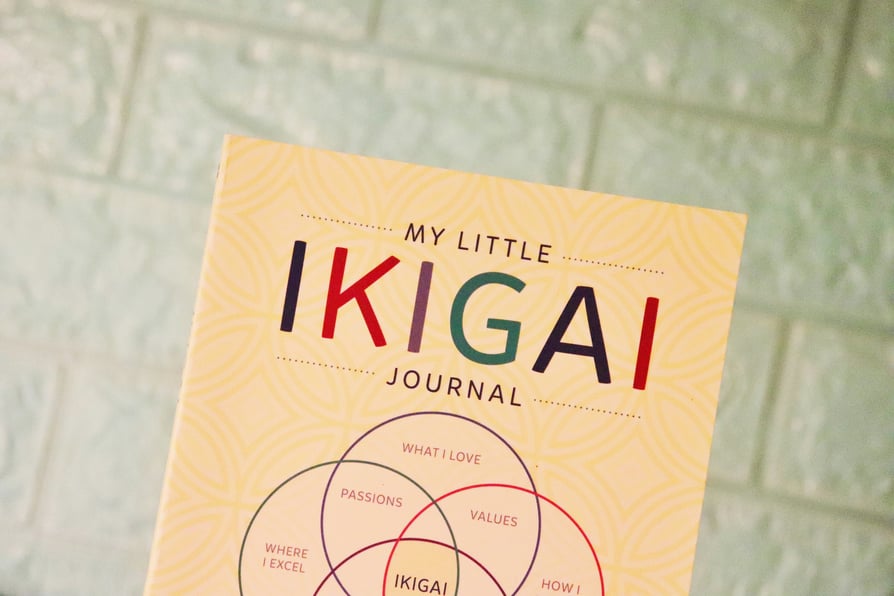
In Japan, it is said that everyone has an Ikigai, known in Western circles as something more along the lines of a raison d’etre, or one’s purpose in life, or the reason we get up in the morning.
Now, before you get existential about it, despite its apparent profundity, the concept of Ikigai can be a fun and useful tool for anyone at the beginning of their business journey. When it comes to shaping your business, perhaps you have many passions and interests, no shortage of ideas to draw from. Maybe the issue is more about narrowing all this potential into a workable plan of action.
This is where Ikigai can help.
What is Ikigai?
Here you can see our take on Mark Winn’s original diagram. The framework is often used to help people find their 'reason for being', or the thing that gives them a sense of purpose or fulfilment. In Japanese, 'Iki' means 'life,' and 'gai' translates to value or worth.
Discovering what you love
Sounds simple, right? Passion is really at the heart of Ikigai. And when it comes to discovering one’s life purpose, many would argue that without a true passion, love, or foundational enjoyment for what you do…what is the point?
Though it may seem overly optimistic, this part of the Ikigai framework is all about ensuring your plans align with and resonate with your passion.
Knowing what you're good at
Moving anti-clockwise, we move to the more practical question: "What you are good at."
This facet of the Ikigai framework highlights a form of symbiosis. If someone is good at what they do, it stands to reason it’s because they derive some level of enjoyment from it, right?
Wrong. Well, at least, it’s not always as true as we’d like to believe. Many factors might see someone persevering with something that comes naturally to them, despite no longer enjoying or feeling passionate about it. So, be honest with yourself here. What are your skills? Where do your strengths lie? Both your tangible and intangible skills can go a long way in bringing you closer to where you want to be. Passion and skill is a powerful for a powerful combination, after all.
Equally, not all of us are lucky enough to have a natural talent in the areas we love. So, crucially, this part of the Ikigai diagram serves as a fantastic way to reflect on areas in which you can improve and grow, and where you can leverage your existing strengths.
Does a lack of proficiency in a skill equate to the absence of Ikigai? Certainly not. In these cases, harbouring a genuine passion for your pursuits can be the magic ingredient for a purposeful existence.
Figuring out what the world needs
Now, let's shift our focus to "What the world needs". As an aspiring business owner, what kind of difference would you like to see in the world, and could you be a part of that shift? Perhaps you’re passionate about local craftsmanship, or supporting local artisans and makers. Maybe designing and making your own products is more your thing. There may be a gap here, that may align nicely with your existing skillset and/or passions.
Equally, it may be that your passions and aspirations are on a smaller scale. Making a difference in the world won’t always look like an earth-shattering enterprise, and it's okay if the impact you make is smaller, or more confined to your personal or local sphere. Ultimately, finding your Ikigai is about what feels true to you, not what looks impressive to others.So, allow yourself the freedom to explore what the question "What the world needs" means to you. In the end, both you and the world will be better off once you’re following your Ikigai.
Establishing whether you can be paid for it
The final element in the Ikigai framework is "What you can be paid for.", because as much as many would love to live off of passion alone, we have bills to pay. This last facet grounds us back in reality, inviting us think more practically about how we might make our goals work. Undoubtedly, this may pose the greatest challenge. After all, being paid for your talents and passions while making the world a better place sounds like a dream.
However, for many financial success is not the be all, end all. Though it’s certainly a part of Ikigai, keep in mind that it’s just a small part of a more holistic outlook for steering your life and career in a direction that feels right for you.
Of course, when it comes to building a business, financial viability is important. But if financing and numbers isn’t your strong suit, consider that there are options available to you when it comes to financing your retail business if you know where to look.For more information, be sure to check out our guide to retail finance here.
Using this concept as a starting point, you can hopefully narrow down your goals and interests down enough to begin the process of crafting a business plan or proposition.
Tips for finding your Ikigai as an entrepreneur
Balance your personal and business needs: Understand that your Ikigai should bring personal fulfilment beyond financial gains. Strive for a balance between your aspirations and the needs of your potential business ideas. Most of all, make sure that your business pursuits contribute positively to your overall well-being.
Be open to adaptation: Recognise that your Ikigai may evolve as your business grows and changes. Stay open to adapting your strategies and goals to align with your evolving passions, skills, and the needs of the world.
Embrace individuality: Understand that your Ikigai is unique to you and your business journey. Avoid comparing your path to others; focus on what brings you fulfilment. Embrace the uniqueness of your business and the contributions you make.
Reflect regularly: Set aside time to check in on your personal and business journey. Assess how well your current endeavours align with your passions, skills, and overall mission. Does it still speak to you and bring you joy? Be honest with yourself, and make any adjustments as needed to stay true to your Ikigai.
Bring meaning and joy to every day
Remember, finding your Ikigai as an entrepreneur and aspiring small business owner is an ongoing process that involves self-discovery, adaptability, and a commitment to aligning your actions with your deepest values and aspirations.
Using this concept as a starting point, you can hopefully narrow down your goals and interests enough to begin the process of crafting a business plan or proposition.
Not registered with CREOATE yet? Sign up now and shop wholesale with us today.








